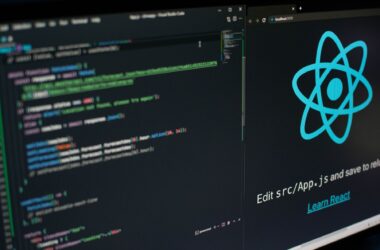Introduction
Learning computer programming can be an exciting yet challenging journey. Whether you’re a beginner or looking to enhance your programming skills, finding ways to expedite the learning process can be highly beneficial. In this blog post, we’ll explore seven effective tips to help you learn computer programming faster. By implementing these techniques, you’ll be able to accelerate your progress and become a more proficient programmer in no time.
Why is it Important to Learn About Computer Programming?
Learning to write a computer program is immensely important in today’s digital age. Programming skills empower individuals to create, automate, and solve problems using technology. It provides a means to translate ideas and concepts into functional software applications that can revolutionize industries, improve efficiency, and enhance user experiences. Additionally, programming fosters critical thinking, logical reasoning, and problem-solving abilities, enabling individuals to approach complex challenges from a structured and systematic perspective. In a world heavily reliant on technology, understanding programming opens doors to diverse career opportunities in software development, web development, data science, artificial intelligence, and more. Moreover, programming allows individuals to innovate, experiment, and bring their creative ideas to life, driving technological advancements and shaping the future. Ultimately, learning to write a computer program empowers individuals with a versatile skill set and equips them to navigate and thrive in the increasingly digital world we live in.
What Are The Seven Tips?
In the fast-paced world of programming, acquiring new skills efficiently is crucial for success. Whether you’re a beginner or aiming to level up your programming prowess, finding strategies to expedite the learning process can make a significant difference. In this article, we will explore seven valuable tips that will help you learn programming faster. By incorporating these proven techniques into your learning journey, you’ll be able to maximize your productivity, deepen your understanding of programming concepts, and ultimately become a more proficient and confident programmer. So, let’s dive into these tips and discover how they can accelerate your path to programming mastery.
1. Set Clear Goals and Prioritize:
To learn computer programming efficiently, start by setting clear goals. Define what you want to achieve and break it down into smaller, manageable tasks. Prioritize these tasks based on their relevance and difficulty level. By organizing your learning journey, you’ll stay focused and make steady progress towards your goals.
2. Practice Consistently:
Consistency is key when it comes to learning programming. Dedicate regular time slots to practice coding and stick to them. Repetition helps reinforce concepts and improve your problem-solving skills. Utilize online coding platforms, work on coding challenges, and undertake small projects to apply your knowledge actively.
3. Find the Right Learning Resources:
Choosing the right learning resources can significantly impact your learning speed. Look for high-quality tutorials, textbooks, online courses, and interactive coding platforms that suit your learning style. Utilize resources that provide clear explanations, practical examples, and opportunities for hands-on practice. Remember to leverage reputable websites, coding communities, and forums for additional support and guidance.
4. Break Down Complex Concepts:
Computer programming often involves complex concepts and logic. To learn faster, break down these concepts into smaller, digestible parts. Understand each component thoroughly before moving on to the next. This approach allows you to grasp the fundamentals and build a strong foundation, enabling you to tackle more advanced topics with ease.
5. Collaborate and Seek Feedback:
Engaging with others who share your passion for programming can greatly enhance your learning experience. Join coding communities, attend local meetups, or participate in online forums to connect with like-minded individuals. Collaborate on projects, share your code, and seek feedback from experienced programmers. Learning from others’ perspectives and receiving constructive criticism will help you grow as a programmer and improve your skills rapidly.
6. Break Problems into Smaller Steps:
When faced with a coding challenge or a complex problem, break it down into smaller steps. Analyze the problem, identify the key components, and develop an algorithmic approach. By dividing the problem into manageable parts, you’ll find it easier to devise solutions and debug your code. This systematic approach not only speeds up your learning but also enhances your problem-solving abilities.
7. Embrace Continuous Learning:
The field of computer programming is constantly evolving, with new technologies and frameworks emerging regularly. To stay ahead, embrace continuous learning. Stay updated with the latest industry trends, follow influential programmers and thought leaders on social media, and explore new programming languages and frameworks. By keeping yourself informed, you’ll adapt to changes more quickly and expand your programming repertoire.
Sample Schedule/Guideline You Can Follow Incorporating The Seven Tips
Here’s a detailed schedule for learning computer programming, incorporating the seven tips mentioned above, assuming a minimum of 2 hours of dedicated learning time each day:
- Week 1:
- Set Clear Goals and Prioritize:
- Day 1: Define your learning goals and objectives for the programming language you chose.
- Day 2: Break down your goals into smaller tasks and prioritize them based on importance and difficulty.
- Practice Consistently:
- Days 3-7: Dedicate 30 minutes to theory-based learning, followed by 90 minutes of hands-on coding practice. Use online tutorials or a beginner’s programming course to learn the basics and complete simple coding exercises.
- Set Clear Goals and Prioritize:
- Week 2:
- Find the Right Learning Resources:
- Days 8-9: Research and choose a reputable programming textbook or online course that suits your learning style.
- Days 10-14: Follow the course or textbook, completing the suggested exercises and projects. Supplement your learning with additional online resources and coding communities.
- Find the Right Learning Resources:
- Week 3:
- Break Down Complex Concepts:
- Days 15-16: Focus on understanding variables, data types, and control flow statements in the programming language you chose. Break down each concept, practice writing code, and experiment with different scenarios.
- Days 17-18: Dive deeper into object-oriented programming concepts like classes, objects, and inheritance. Practice creating classes and implementing inheritance relationships.
- Break Down Complex Concepts:
- Week 4:
- Collaborate and Seek Feedback:
- Day 19: Join online coding communities or forums related to the programming language you chose. Introduce yourself and seek feedback on your code or any questions you may have.
- Day 20: Collaborate with fellow learners on a small programming project. Share your progress, exchange ideas, and offer feedback to others.
- Collaborate and Seek Feedback:
- Week 5:
- Break Problems into Smaller Steps:
- Days 21-22: Solve coding challenges focusing on problem-solving techniques. Break down the problems into smaller steps, devise a plan, and implement your solutions using the language of your choice.
- Days 23-24: Work on a moderately complex programming project that involves multiple components. Break it down into smaller tasks, implement each step, and debug as needed.
- Break Problems into Smaller Steps:
- Week 6:
- Embrace Continuous Learning:
- Days 25-28: Stay updated with the latest news and trends in the selected programming language. Follow influential programmers on social media, read programming blogs, and explore new frameworks or libraries.
- Embrace Continuous Learning:
Note: This schedule is flexible, and you can adjust it based on your learning progress and personal preferences. Remember to adapt the time allocated for each topic or task based on your understanding and the complexity of the material. Additionally, make sure to take short breaks during study sessions to maintain focus and avoid burnout.
By following this schedule, you’ll be able to learn a programming language of your choice efficiently while incorporating all the tips mentioned earlier. Good luck on your learning journey!
Conclusion
Learning computer programming faster requires dedication, consistency, and effective strategies. By setting clear goals, practicing consistently, utilizing the right resources, and breaking down complex concepts, you can expedite your learning process. Collaboration, problem-solving techniques, and embracing continuous learning are essential ingredients to enhance your programming skills. Remember, becoming a proficient programmer takes time and effort, so stay motivated and enjoy the journey. With these seven tips as your guide, you’ll be well on your way to mastering computer programming. Happy coding!
We would love to hear from you! What are your thoughts on these tips for learning programming faster? Have you tried any of these techniques before? How did they work for you? Share your experiences, insights, and any additional tips you may have in the comment section below. Your valuable input not only enriches the discussion but also provides a platform for fellow learners to benefit from your experiences. So, don’t hesitate to join the conversation and let us know your thoughts on accelerating the journey of learning programming. We’re excited to hear from you!









